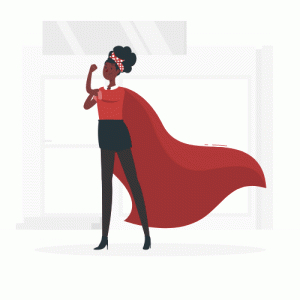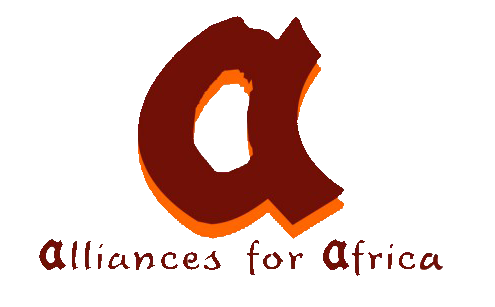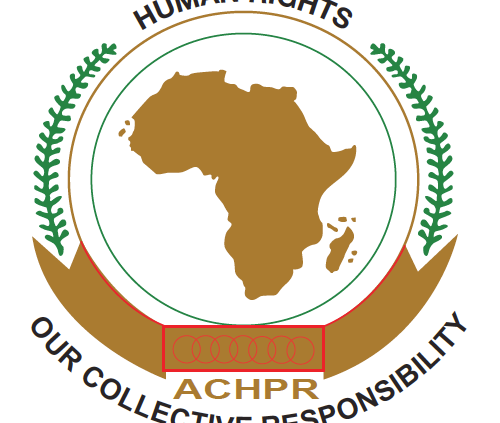Statement by Alliances for Africa at the 68th Ordinary Session of the African Commission on Human and Peoples’ Rights
Honorable Chairperson of the ACHPR,
Alliances for Africa is an international African led non-governmental human rights, peace and
sustainable development organization. AfA works with partners in, around and beyond the
continent of Africa. Alliances for Africa is a member of the Solidarity for African Women’s
Rights (SOAWR), a coalition of over 60 organizations working on women’s rights in 32
countries in Africa. SOAWR was formed with the principal objective of advocating for the
ratification, domestication and implementation of the Protocol to the African Charter on Human
and Peoples’ Rights on the Rights of Women in Africa (the Maputo Protocol), which was
adopted 17 years ago.
Honorable Chairperson, as the global community begins taking steps towards an economic and
social recovery in the wake of the COVID-19 pandemic, Alliances for Africa and the SOAWR
Coalition calls upon the African Union and its member states to apply a human rights based
approach to these post COVID-19 recovery efforts. Specifically, we urge the African Union and
its member states to take into serious consideration the gendered effects of the COVID-19
pandemic, in particular the disproportionately harmful effects of the pandemic on the rights of
women and girls in Africa. We urge the Commission to develop guidelines on human rights
based and gender sensitive approaches when it comes to government-led efforts aimed at the post
COVID-19 economic and social recovery, along the lines of earlier guidelines by the ACHPR on
promoting similar approaches on the question of combatting the pandemic. These proposed
guidelines would take into consideration the need for increased resources, focus and attention on
the disproportionate effect of the COVID-19 pandemic on the social and economic rights of
women, their right to live free of violence and discrimination, as well as their right to live in a
positive cultural context free from the risk of harmful cultural practices.
Honorable Chairperson, our attention has been drawn to reports of sexual violence against
women in several parts of Ethiopia at present, but with particular concern to the conflict-hit
Tigray region of Ethiopia given the gravity and the scale of the violations as well as the presence
of foreign troops, thus warranting coordinated national, continental and international responses
to address the situation. These reports have also been raised by the United Nation’s Special
Representative on Sexual Violence in Conflict and have been charaterized as a systematic use of
sexual violence as a weapon of war through its use as both a strategy and tactic of conflict and
coercion. The horrendous survivor accounts from the Tigray region of sexual abuse of civilians
only serve to confirm that there is nothing inevitable about this brutal state of affairs. The Federal
Democratic Republic of Ethiopia is a signatory to several international and regional human rights
treaties including the African Charter and its Protocol on the Rights of Women in Africa. We
therefore invoke the ACHPR’s mandate to protect the rights of the women in Tigray and other
regions in Ethiopia where is there is active conflict and women girls safety has been
compromised and urge the Commission to urgently set in motion the mechanism of the Special
Rapporteur on the Rights of Women in Africa and the Commissioner Rapporteur for Ethiopia to
establish an immediate inquiry into the allegations and collaborate with relevant national,
regional and global actors responsible for the promotion and protection of the rights of women to
redress any violations of women’s rights in the Tigray region, including through prosecutions
under international criminal law. This inquiry needs to extend to violations committed by all
parties, including Eritrean forces in Tigray. Further, we demand that the Special Rapporteur on
the Rights of Women in Africa urge the relevant authorities to put in place measures to ensure
that women and girls in the region are protected from rape and sexual assault in line with
Ethiopia’s human rights obligations and take all steps necessary to address and mitigate the harm
to victims of sexual violence that have already occurred through a survivor-centered approach.
Honorable Chairperson, African Union member states committed to achieve universal
ratification of the Maputo Protocol by 2020. Regrettably, to date, four months after the end of the
African Women’s Decade, 13 AU member states are yet to ratify the Maputo Protocol. We urge
the remaining 13 AU member states – Botswana, Burundi, Central African Republic,
Chad, Egypt, Eritrea, Madagascar, Morocco, Niger, Sahrawi Arab Democratic Republic,
Somalia, South Sudan and Sudan – to urgently ratify the Maputo Protocol in order to
ensure that the women and girls in these countries enjoy their rights as enshrined in the
Protocol. Additionally, it is concerning that only 16 of the 42 state parties to the Maputo
Protocol have reported on the Maputo Protocol, almost 18 years since its adoption. Alliances for
Africa and the SOAWR Coalition urge the ACHPR to continue to encourage Member States to
comply with their reporting obligations under Article 62 of the African Charter and Article 26 of
the Maputo Protocol. Further, we urge the Commission to adopt and popularize the Guidelines
on Shadow Reporting under the African Charter and the Maputo Protocol.
I thank you.
Done in Owerri, Imo State, Nigeria on 13 April 2021
The SOAWR Coalition is comprised of:
1. Action for Development (ACFODE)
2. African Centre for Democracy and Human Rights Studies (ACDHRS)
3. African Women’s Development Fund
4. African Women’s Development and Communication Network (FEMNET)
5. Akina Mama wa Afrika
6. Alliances for Africa
7. Association des Juristes Maliennes (AJM)
8. Association des Juristes Sénégalaises
9. Association of Egyptian Female Lawyers (AEFL)
10. Atwar Organization for Research and Social Development (Atwar)
11. BAOBAB for Women’s Human Rights
12. Cellule de Coordination sur les Pratiques Traditionnelle Affectant la Santé des Femmes et
des Enfants (CPTAFE)
13. Center for Health Human Rights and Development (CEHURD)
14. Center for Human Rights – University of Pretoria
15. Center for Reproductive Rights
16. Centre for Rights Education and Awareness (CREAW)
17. Centre for Justice Studies and Innovation (CJSI)
18. Centre for the Study of Violence and Reconciliation (CSVR)
19. Coalition on Violence Against Women
20. Collectif des Associations et ONGs Féminines du Burundi
21. Eastern African Sub-regional Support Initiative
22. Equality Now
23. Fahamu Networks for Social Justice
24. Federation of Women Lawyers Kenya
25. Fondation Pour l’Égalité/ CIDDEF
26. Forum Mulher
27. Girl Child Network
28. Great Lakes Initiative for Human Rights and Development (GLIHD)
29. Human Rights Law Service (HURILAWS)
30. IGED Africa
31. ICJ Kenya
32. Inter-African Committee (IAC) on Harmful Traditional Practices
33. Inter-African Network for Women, Media, Gender Equity and Development
(FAMEDEV)
34. Ipas Africa Alliance for Women’s Reproductive Health and Rights
35. Jossour
36. KADIRAT
37. Legal and Human Rights Centre (LHRC)
38. Make Every Woman Count
39. Malawi Human Rights Resource Centre/ NGOGCN
40. NAFGEM Tanzania
41. NGO Gender Coordination Network
42. Oxfam GB
43. People Opposing Women Abuse (POWA)
44. Question de Femmes
45. Reproductive Health and Rights Alliance
46. Réseau des Femmes Leaders pour le Développement (RFLD)
47. Sister Nambia
48. STEWARD Women
49. Strategic Initiative for Women in the Horn of Africa (SIHA)
50. Tomorrow’s Child Initiative
51. Tshwaranang Legal Advocacy Centre (TLAC)
52. Uganda Women Network (UWONET)
53. Union Nationale Des Femmes Djiboutiennes
54. Voix de Femmes
55. WANET
56. WLSA ZAMBIA
57. Women in Law and Development in Africa
58. Women NGO Secretariat of Liberia
59. Women of Liberia Peace Network
60. Women’s Advocacy and Communication Network
61. Women’s Counselling and Information Centre (WCIC)
62. Women’s Rights Advancement & Protection Alternative (WRAPA)
63. Young Liberian Women Organization for Improvement (WOFIM)





Leave a Reply
Want to join the discussion?Feel free to contribute!